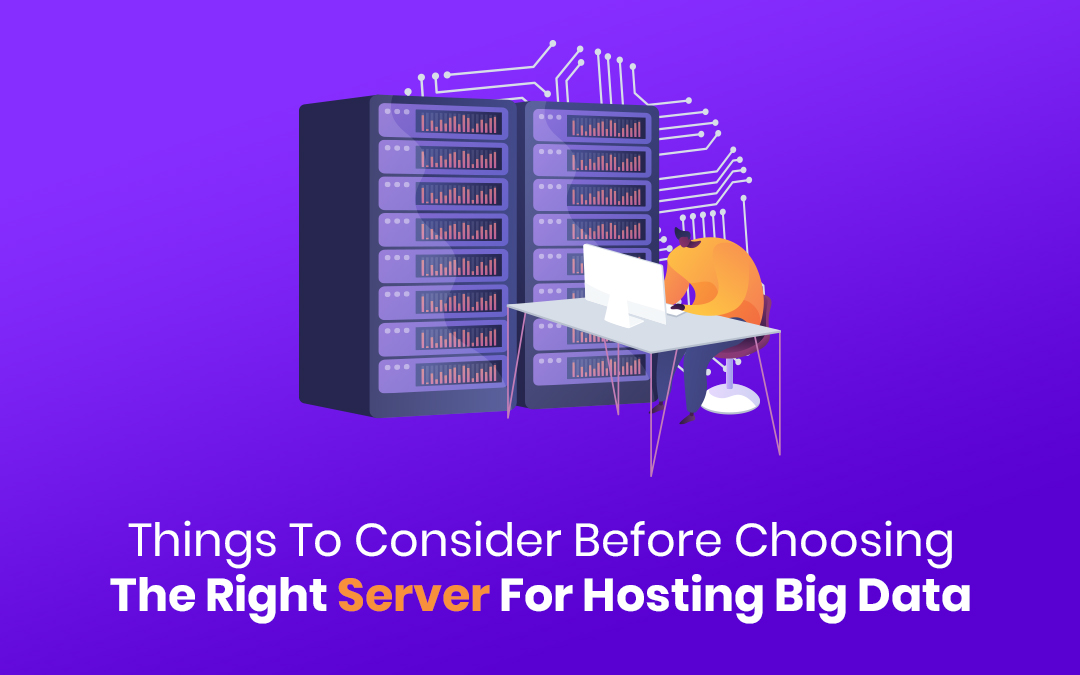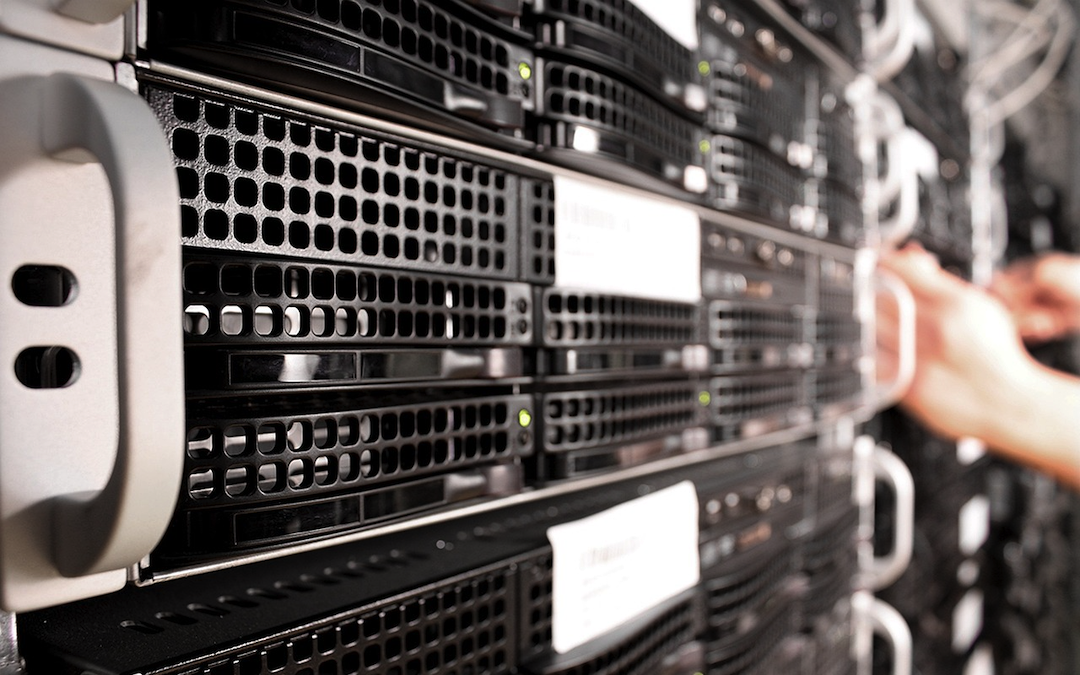
Over 50% of organizations worldwide embrace digital transformation to enhance client service, making applications and websites crucial business-customer interfaces. Dedicated servers, with their ability to deliver faster and more reliable operations, play a significant role in enhancing the dependability and speed of these digital platforms.
Researching reputable cloud hosting companies that offer dedicated hosting services is a key step in maximizing the performance and value of your investment. This is particularly beneficial for small businesses looking to upgrade their server configuration, as a good dedicated server can significantly improve their operations.
Are you trying to find a dedicated server that will work for you and fulfill your needs? The following are some essential things to think about and variables to consider to assist you in choosing the finest dedicated server option.
Understanding the Hosting Landscape for IoT and Big Data
What is Dedicated Server Hosting?
A dedicated server is a top-grade physical server that houses the apps and services of just one hosting client. Simply put, a dedicated server is an actual machine entirely devoted to a single client, with all of the server's AI capabilities going to that client.
Dedicated servers offer improved security, performance, more control, and customized data visualization over the hosting environment. They provide a more robust and dependable hosting environment but are typically more expensive than shared hosting.
Websites with a lot of traffic, web apps, and other hosting situations where speed is critical are usually hosted on dedicated servers. It is helpful to begin by comparing alternative hosting options to provide a clear answer to the question, "What is a dedicated server?" The most popular choices for infrastructure hosting are cloud, virtual private server, shared, and dedicated server hosting.
The primary characteristic that sets a dedicated server apart is that it is a single-tenant hosting platform. Most infrastructure hosting solutions split a server's resources among two or more users; cloud hosting platforms, for instance, split a single physical server's resources among numerous virtual machines. None of the resources and performance of a dedicated server are available in what are referred to as multi-tenant hosting systems.
With a reasonable dedicated server price, you have access to everything it offers. Dedicated servers are the only IoT solution for infrastructure that can provide greater flexibility and power.
Key Challenges in IoT and Big Data Applications Hosting
Two issues associated with managing big data servers are the rapid flow of data and the requirement for real-time gathering and processing. The escalation in sensor count and the consequent rise in data volume present a noteworthy obstacle for data processing, analysis, and storage. Other significant obstacles in IoT applications include security and privacy issues related to data exchange. The complexity of big data, which is created in real-time from various networked open sources, further complicates processing and analysis. Additional difficulties include the volume and size of the data, the data's continuity and noise, and the requirement for data administration and preparation.
Factors to Consider for Choosing A Big Data Hosting Server
- The ability to scale
- Make a backup and restore
- Client assistance
- Cost–Effective
- Availability
- Dependability
- Command Centre
- The bandwidth
- Spending Plan
- Credibility
- Efficiency and velocity
- Dependable and timely
Scalability - Handling Huge Volumes of Data
Add-ons, upgrades, and other enhancements are subject to rules and restrictions on most shared servers. Conversely, users can instantly access the newest features, resources, and improvements with a dedicated server.
They enable businesses to gradually raise their revenue by expanding their online presence. However, because dedicated servers have a large bandwidth, customers can store infinite data. Verify that your reliable service provider can scale to a suitable level.
Security and Compliance
Your big data web hosting company should offer security features like RAID, LetsEncrypt SSL, DDoS protection, security monitoring, and safe data centers. If you are searching for a web hosting provider, consider security first.
Selecting a hosting provider with excellent security guarantees the safety of your website and your client's information. If you're looking for an extra layer of protection, consider the security measures and available plans.
High Capacity of Processing
Extensive data analytics systems typically split up the processing tasks into multiple threads. These threads are run concurrently and are split among the machine's several cores. You need 8–16 cores for a light to moderate load, but depending on the load, you can need more.
Generally speaking, if you want more capable performance, you should aim for more cores rather than fewer, extremely powerful cores.
Data Storage and Management
Big Data and IoT platforms handle massive volumes of data created in real time; therefore, efficient data management and storage are essential. Adequate storage options guarantee that information is swiftly processed for insights and decision-making, securely stored, and conveniently accessible.
Poor storage management can result in data fragmentation, which can raise expenses and cause inefficiencies. Diverse storage options cater to different requirements. Data warehouses are perfect for analytical tasks since they are made for complicated queries and structured data.
Cloud storage's scalability, cost-effectiveness, and flexibility enable expansion without interruption as data quantities increase. To guarantee that data sources are secure and constantly available, cloud IoT also offers disaster recovery and big data solutions.
Despite providing greater control and protection, on-premises storage might be more expensive and less versatile than cloud storage. Because it can grow with demand and save costs related to the upkeep of physical infrastructure, cloud servers are frequently used for large-scale, dynamic data environments such as IoT and big data platforms.
Dependable communication is crucial for IoT projects and devices because it permits smooth data transfer between peripherals and central operating systems. Any interruption in connectivity can result in data loss, delayed actions, or impaired system performance in Internet of Things environments, where devices continuously send and receive data. This can impact the platform's overall functionality.
Connectivity and Device Management
Device management systems are essential for preserving IoT devices' functionality and general well-being. These systems integrate with hosting services to offer centralized control over device arrangements, updates, and security procedures. They also allow users to monitor and troubleshoot in real-time, guaranteeing that devices are safe and functional.
In the Internet of Things context, prompt data sharing is frequently necessary for instant decision-making, and high-speed and latency connections are essential. Reduced latency reduces delays, enabling more accurate real-time data processing and quicker answers. These elements, such as industrial automation or driverless cars, are especially vital when milliseconds can make a big difference.
Flexibility and Customization
Your needs change over time; thus, in this situation, both your hosting provider and dedicated database server must be adaptable. Choosing, maintaining, and upgrading the software for dedicated servers is a significant concern. However, you can modify the dedicated server to meet your unique requirements and improve the functionality of your company website.
You can install applications, software, and safety precautions that benefit your organization. Consequently, dedicated servers can be helpful for any organization or industry. These bespoke options are all yours to utilize with the correct dedicated server.
Conclusion
If you follow these six recommendations, you will undoubtedly feel much more confident about selecting the best web hosting. However, it's always a good idea to remember the most crucial detail: To choose the plan that best suits your needs, you must thoroughly understand the many website hosting options available.
Fortunately, companies are becoming increasingly conscious of this and provide packages tailored to specific market niches.
 FAQs
FAQs
When selecting an IoT hosting server, you may take into account factors such as: Managing Several Requests, High Processing Power, and Price.
The Internet of Things (IoT) requires intelligence as a prerequisite. It enables data processing, analysis, and decision-making on the part of IoT devices based on the data they gather. An Internet of Things (IoT) gadget would only be able to fulfill its purpose or offer value to the user with intelligence.
IoT Data Server is a "Data Integration Controller" comprising data integration software that doesn't require programming and is highly dependable for industrial computers. It has standard data management features created especially for gathering, processing, storing, notifying, and disseminating data.
A dedicated server is a physical server allocated to a single organization. For your users to access your services, you need a server to host or run your websites and applications. The hosting provider distributes the physical server's resources among several clients and maintains and controls them.
Fewer storage and bandwidth restrictions than with shared hosting. Excellent dependability and low maintenance requirements. Greater computational capacity than shared hosting.
Related Posts
Share this post
Leave a comment
All comments are moderated. Spammy and bot submitted comments are deleted. Please submit the comments that are helpful to others, and we'll approve your comments. A comment that includes outbound link will only be approved if the content is relevant to the topic, and has some value to our readers.



Comments (0)
No comment